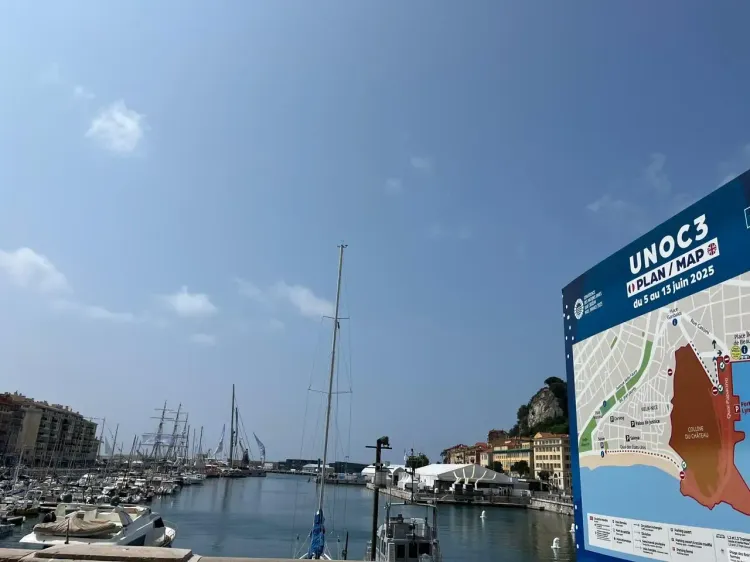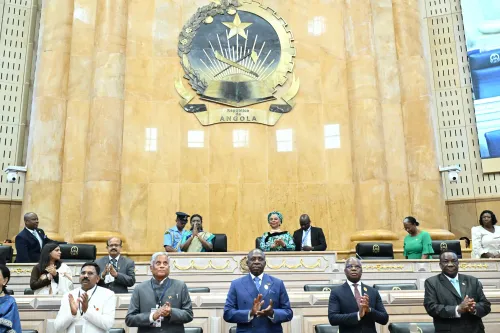What did French Prez Macron say at the UN Ocean Conference?

Synopsis
Key Takeaways
- Multilateral action is crucial for ocean conservation.
- Sustainable Development Goal 14 requires more funding.
- Over 2,000 voluntary commitments have been recorded.
- Small island states are especially vulnerable to ocean threats.
- The Nice Ocean Action Plan aims to catalyze urgent action.
Nice (France), June 9 (NationPress) French President Emmanuel Macron emphasized that “the globe is burning, the oceans are boiling” during a call for nations to strengthen their commitments against overfishing, pollution, and marine conservation. Opening the third UN Ocean Conference (UNOC3) in the picturesque city of Nice, Macron urged for multilateral action to protect the oceans, addressing representatives from over 150 countries.
He stated, “Every initiative we launch for the oceans is aimed at sustainable development across its economic, social, and environmental dimensions.” He highlighted the critical situation for developing nations and small island states, which have depended on oceans for trade, tourism, food security, and resources for centuries.
Macron stressed the need for funding to achieve these ambitions collectively, noting that Sustainable Development Goal 14 is among the least funded. “Accelerating ocean action requires substantial and accessible financing,” he stated, while calling for stronger implementation mechanisms for developing countries. He expressed hope for the adoption of the conference’s political declaration.
Macron noted that several commitments from the 2022 Ocean Conference have been realized, with over 2,000 voluntary commitments recorded across various sectors, including governments and civil society.
The UNOC3 is the largest ocean summit to date, uniting a diverse array of stakeholders such as governments, international organizations, private entities, and academia. The oceans are pivotal, powering 80 percent of global trade and supporting jobs, food security, and climate initiatives. However, they face threats from climate change, pollution, and underinvestment.
During the opening remarks, United Nations Secretary-General António Guterres encouraged nations to make bold pledges, stating, “We live in a tumultuous era, but the resolve I witness here inspires hope” for positive change. Costa Rica's President Rodrigo Chaves Robles added that “this summit must be recognized as a pivotal moment for ocean stewardship.”
As the summit continues until June 13, it is expected to produce a political declaration and a registry of voluntary commitments, collectively termed the Nice Ocean Action Plan, aimed at catalyzing urgent, inclusive, and science-based efforts to safeguard the oceans for future generations.
United Nations Under-Secretary-General Li Junhua remarked, “Incremental progress is no longer sufficient. We require billions, not millions, in investments and binding commitments that endure through political shifts.” Key topics for discussion include the Marine Biodiversity Treaty, sustainable fisheries, marine conservation areas, decarbonizing maritime transport, plastic pollution, and financing.
(Vishal Gulati can be contacted at vishal.g@ians.in)









